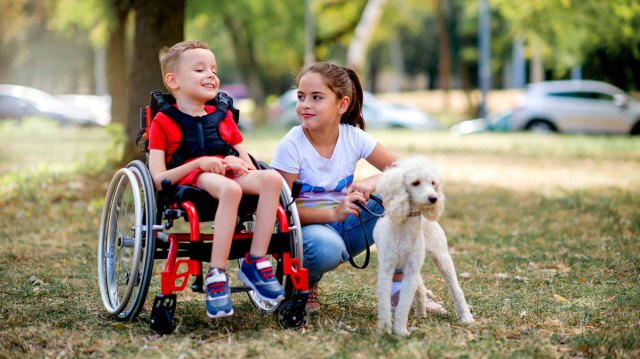The importance of kindness can’t be overstated. It builds empathy and makes kids more resilient
Anyone who’s ever seen a two-year-old shout “MINE!” during a tussle with another toddler may question a child’s innate altruism. The good news is that experts say kindness is instinctual and that being kind should be every parent’s No. 1 goal. Why? Studies show that the simple act of being nice helps kids grow into happier, healthier, and more likable people.
“Kindness helps children’s mental health, their resilience, as well as their peak performance,” says educational psychologist Michele Borba, author of Thrivers: The Surprising Reasons Why Some Kids Struggle and Others Shine. Want to know more about how “playing nice” makes all the difference? Read on for the expert scoop.
Kindness Builds Empathy
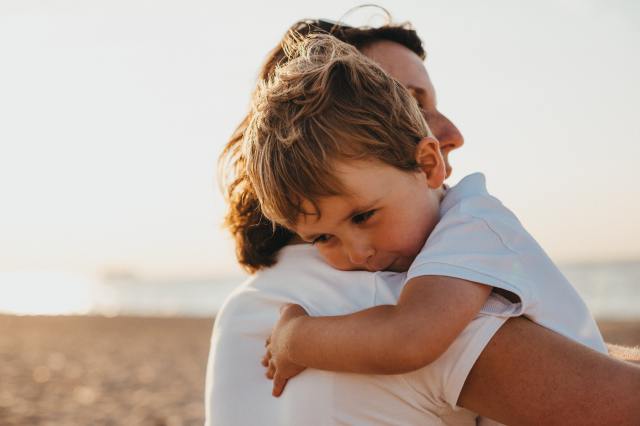
Kindness and empathy often go hand in hand. After all, it takes an understanding of what someone is going through to figure out the best way to help them.
"It doesn’t mean kindness is the same as empathy," said Borba, who also wrote the 2016 book, UnSelfie: Why Empathetic Kids Succeed in Our All-About-Me World. "Practicing empathy helps a child develop a kindness mindset. They say, ‘I see myself as a kind person,' and then they’re more likely to keep doing it."
But here's the bad news: Empathy is going down. According to a nearly 30-year study into empathy, teens today are 40% less empathetic than they were just a generation ago, while narcissism has increased by 58%.
Of course, this can change if kids today learn to cultivate what Borba calls their empathy "superpower." Parents can do this with something as simple as reading to their children and stopping to ask, "How do you think that character is feeling right now?"
"Empathy is a superpower to helping kids become more resilient in a more uncertain world," Borba said. "With everything going on in the world today, from racism to social injustice, now is prime time to think empathy and to have some real serious wonderful debates in your family."
Want to hone your kids' superpowers? Borba has this list of 50 books to teach empathy.
It Makes Kids More Resilient
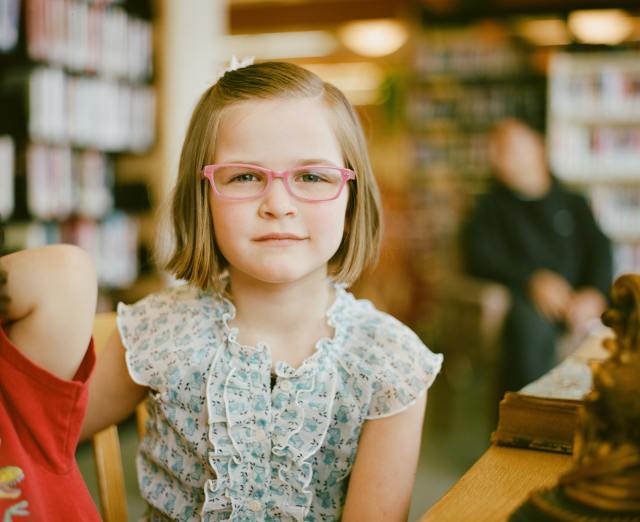
As parents, you've probably seen it. Your child is having a bad day: She's slow to get out of bed; she's fighting with her sibling; she bickers with you. Then, the final straw: She stubs her toe.
Cue the meltdown.
But consider: If that same child is bobbing along, happy and regulated, that same stubbed toe might spark barely a whimper.
Experts say it's a domino effect: Kindness sparks happiness and gratitude—which builds resilience. "If you’re concerned about your pain—disappointment, stress, unhappiness—it’s hard to feel for others," Borba said. "You’re in self-care mode and often dial your empathy down so you can breathe."
Once kids learn the secret of giving back or feeling with another, they can realize they’re not alone, Borba said. Stress reduces, empathy opens, and they find a way to be kind to each other (and themselves!).
"They also learn a key lesson," she added. "Compassion in action is one of the best ways to help another and yourself."
It Builds Strong Leaders
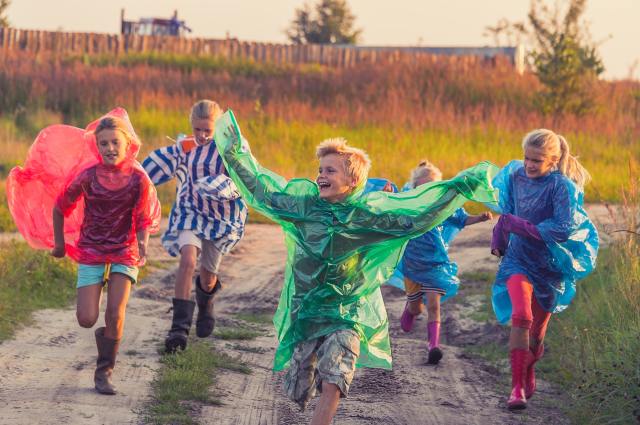
According to this research from the Center for Creative Leadership, kindness is crucial for building successful leaders. The study demonstrated that empathetic leaders, in particular, were considered better at their jobs than those who didn't show high levels of empathy.
"Empathetic leaders are assets to organizations, in part, because they can effectively build and maintain relationships—a critical part of leading organizations anywhere in the world," the research concluded.
Borba agreed. "Thrivers have an 'I got this feeling,'" she said, adding that empathy and kindness are two of the critical skills kids need to thrive as adults. "They're kids who think we, not me. Kids who, when adversity comes, are not so quick to wave it off; instead, they’re trying to think all the views that are important and they're asking, 'How can I solve this?'"
It Makes People Happier
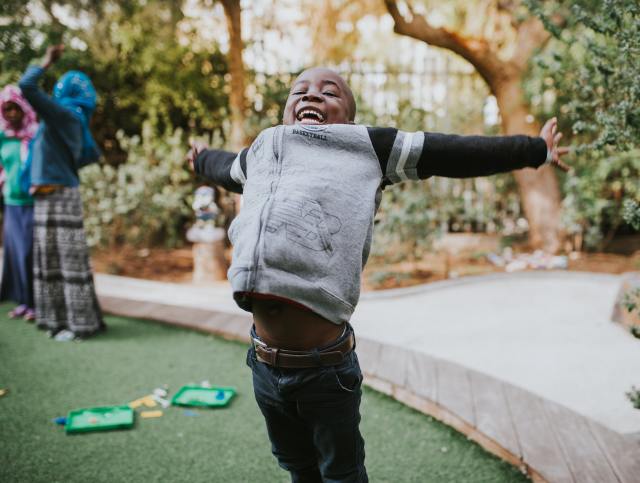
Ask Kindness Rocks Project founder Megan Murphy why she likes to paint words onto rocks and leave them anonymously on the ground for strangers, and she'll be quick to tell you: It just feels good.
"It’s like art therapy. You give yourself that message that you need, and then give it to someone else who might be experiencing the same thing," said Murphy, a life coach and mother of two whose simple idea in 2014 to paint rocks and leave them anonymously for strangers has sparked a worldwide phenomenon that has spread to more than 90 countries. "I never planned to make a movement; I just wanted people to spread kindness."
Studies show that kindness activates the pleasure centers of the brain, raising serotonin levels and decreasing cortisol (stress) levels. In other words, kindness rewires our brains to be happy. But you know what's even cooler? It can rewire other people's brains, too. Studies show that a single act of kindness not only increases feel-good chemicals in the brains of the giver, but it also benefits the receiver—and anyone who witnesses the act (which explains feel-good stories like this one about a teacher who was suddenly gifted more than $500 by four strangers on a cross-country flight).
"When we’re in service of others, our problems seem lesser," Murphy said. "It gives us a greater perspective."
It Builds Confidence
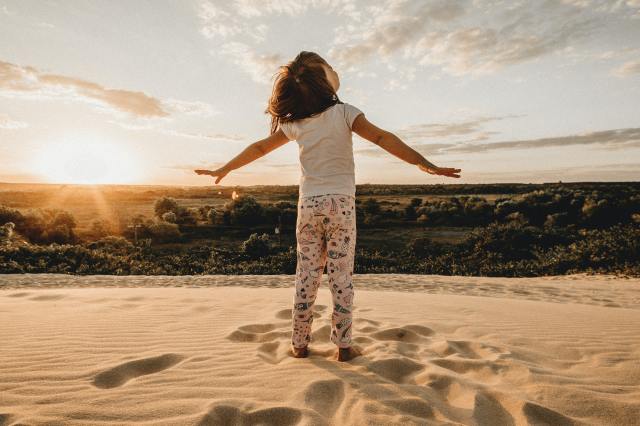
Since being kind makes us feel good, what better way to hone a child's sense of self-worth than to practice kindness?
"Many small acts of kindness add up to bigger feelings," said Murphy. "Now, more than ever, it's important for kids to understand that kindness exists, to see their classmates spreading kindness and being nice to each other."
But don't just take her word for it. A study published in the Journal of Adolescence demonstrated that acts of kindness—whether big (like helping build a house for a low-income family) or small (painting kindness rocks)— boost levels of self-esteem in kids and teens.
"It gives kids a sense of purpose and a sense of, 'I matter,' Murphy said. "There’s no greater sense than feeling like 'I matter.'"
It Makes You Healthier
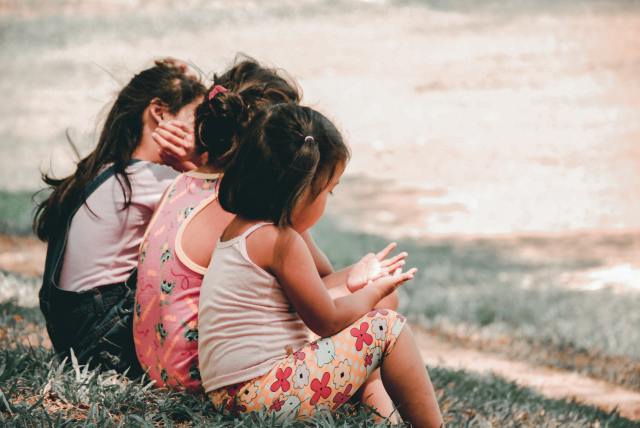
Want to boost your immune system? Be kind. According to multiple studies, kind people have better overall health, lower blood pressure and stronger well-being (conversely, depression and anxiety can make us more likely to get sick).
And it doesn't matter how small the act. Even simple acts of kindness (like anything in this free printable Kindness Calendar) can give our immune systems a boost as well as benefit our overall mental and cardiovascular health.
"It can be said that a generous life is a happier and healthier one," was the conclusion of this report published in the International Journal of Behavioral Medicine. "A strong correlation exists between the well-being, happiness, health, and longevity of people who are emotionally kind and compassionate."
Kind People Have More Friends
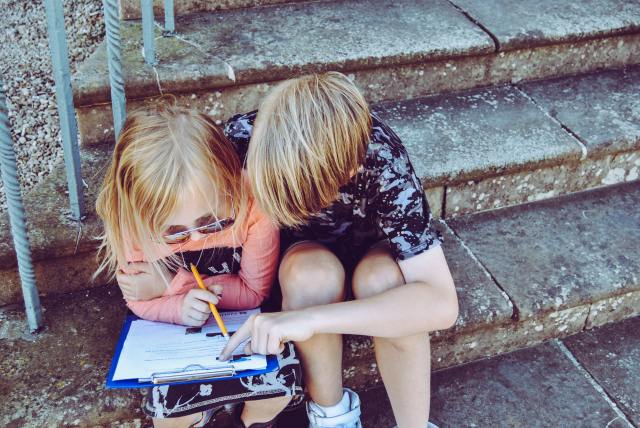
Leave it to science to prove what we've all known forever, but here it is—people like nice people.
According to an Australian study of almost 3,000 high schoolers, kids who exhibited more kind behaviors had more friends than those who showed more "antisocial" behaviors. Similarly, this study of Canadian teens also showed that high schoolers who performed three acts of kindness toward others during a prescribed four-week period were better liked by their peers than those who performed three acts for themselves. Not surprisingly, studies have also shown that kids who have a kind mindset are less likely to be bullied or bully others.
"It may be easier to be friends with a kind person, but those who are unkind not only need friends but need kindness demonstrated to them," said Bo Whittenton, "Chief Kindness Officer" at the Be Kind People Project, a non-profit organization dedicated to "building a generation of respectful, responsible, healthy and caring citizens" through kindness-based educational programming. "We need to teach our children that kindness matters and should be practiced every day."
As if simply being happier isn't impetus enough to choose kindness, how about living a longer and healthier life? This study of more than 300,000 people found that having friends was the number 1 factor in leading a healthier, happier life. In fact, according to research, a lack of friends was as bad as smoking 15 cigarettes a day and riskier than being obese when it comes to decreasing your lifespan.
It Makes the World a Better Place
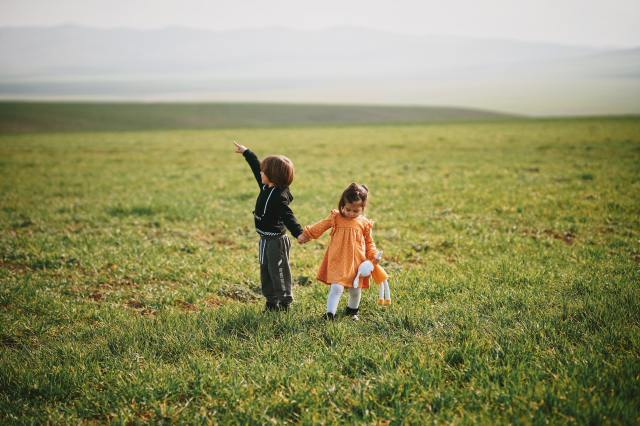
If people are happier when they are kind, and kinder when they are happy—it makes sense that the world itself would be a better place the more people practiced kindness. After all, for as long as we've been around, kindness has been entrenched in our consciousness as imperative. Consider these quotes:
- For it is in giving that we receive — Saint Francis of Assisi
- If you want others to be happy, practice compassion. If you want to be happy, practice compassion.” — The Dalai Lama
- Making money is a happiness; making other people happy is a superhappiness — Nobel Peace Prize recipient Muhammad Yunus
- If you want happiness for an hour, take a nap. If you want happiness for a day, go fishing. If you want happiness for a year, inherit a fortune. If you want happiness for a lifetime, help somebody.” —Chinese saying
Of course, finding time for kindness can be difficult in today's busy, digital, often contactless, world.
"Students are online more today than ever before. Many things are out of our control, but our personal choices and behavior are not," said Whittenton, who encourages all kids to learn about and take a Kindness Pledge. " I choose to find the positive in every day. Yes, there is a lot of negativity and selfishness, but I believe that is the minority. It takes one act of kindness to begin a chain reaction. Today’s youth are tomorrow’s citizens, leaders and parents."
So there you have it. Be positive. Practice small acts of kindness. Talk to each other (in person!). And be kind.
Need some fresh ideas?
Subscribe to our weekly newsletter for expert parenting tips and simple solutions that make life instantly better.
By subscribing you agree to Tinybeans Terms and Privacy Policy
